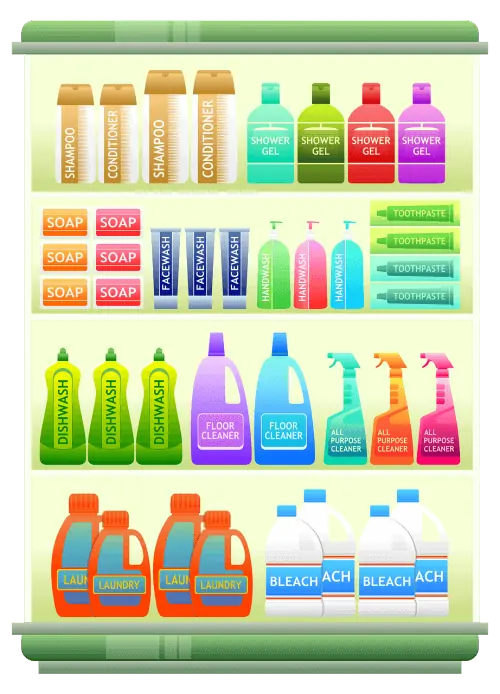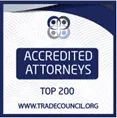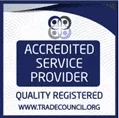Scope of the Philippines’ Food and Drug Administration (FDA) Regulatory Power
In 2009, Republic Act No. 9711 or the Food and Drug Administration Act was signed into law, amending R.A. No 3720 or the Food, Drug, and Cosmetic Act of 1963, and PD 480 and PD 1372. The law authorized the Food and Drug Administration of the Philippines or the FDA, an agency under the Department of Health, to regulate the “manufacture, importation, exportation, distribution, sale, offer for sale, transfer, promotion, advertisement, sponsorship of, and/or, where appropriate, the use and testing of health products”, as well as health product establishments. Under the aforementioned law, health products and health product establishments were defined as:
“(ff) ‘Health products’ means food, drugs, cosmetics, devices, biologicals, vaccines, in-vitro diagnostic reagents, household/urban hazardous substances, and/or a combination of and/or a derivative thereof. It shall also refer to products that may have an effect on health which require regulations as determined by the FDA.”
“(dd) ‘Establishment’ means a sole proprietorship, a partnership, a corporation, an institution, an association, or an organization engaged in the manufacture, importation, exportation, sale, offer for sale, distribution, donation, transfer, use, testing, promotion, advertising, or sponsorship of health products including the facilities and installations needed for its activities.
This means that the rules on licensing and regulation of products regulated by the FDA shall apply to establishments engaged in the manufacture and distribution or the import, export, wholesale and trade, as well as the retail of health products, which includes household/urban hazardous substances.
Definition of Household Hazardous Substances
The Food and Drug Administration Act also defined household/urban hazardous substance as:
“(1) Any substance or mixture of substances intended for individual or limited purposes and which is toxic, corrosive, an irritant, a strong sensitizer, is flammable or combustible, or generates pressure through decomposition, heat or other means, if such substance or mixture of substances may cause substantial injury or substantial illness during or as a proximate result of any customary or reasonably foreseeable ingestion by children, but shall not include agricultural fertilizer, pesticide, and insecticide and other economic poisons, radioactive substance, or substances intended for use as fuels, coolants, refrigerants and the like;
“(2) Any substance which the FDA finds to be under the categories enumerated in clause (1) of this paragraph;
“(3) Any toy or other articles intended for use by children which the FDA may determine to pose an electrical, chemical, physical, or thermal hazard; and
“(4) This term shall not apply to food, drugs, cosmetics, devices, or to substances intended for use as fuels when stored in containers and used in the heating, cooking or refrigeration system of a house, but such term shall apply to any article which is not in itself an agricultural pesticide but which IS a hazardous substance, as construed in paragraph (1) of this section, by reason of bearing or containing such harmful substances described therein.
Products Classified as Household Hazardous Substances
The scope and coverage of household/urban hazardous substances (HUHS) can be found in FDA Memorandum Circular 2013-0045, which includes:
a) Paints, lacquers, varnish;
b) Solvent paint, lacquer thinner, mineral spirits;
c) Adhesives (contact cement);
d) Polishes and Waxes (metal polish, wood polish, shoe polish);
e) Bleaches;
f) Cleaners;
g) Disinfectant sprays;
h) Detergent (bar, liquid, and powder);
i) Dishwashing (liquid and paste);
j) Glues and paste;
k) Fabric (dyes, softeners, and conditioners)
l) Educational set and miscellaneous chemistry set;
m) Stationeries and art paper (colored and/or scented);
n) Air Fresheners (deodorizer, fabric freshener, aromatherapy product, scented candles, gels, oil, spray), and the like.
History of the Rule on Licensing HHS Establishments
DOH Circular 2011-001 or the Implementing Rules and Regulations of R.A. No. 9711 provides that the manufacture, importation, exportation, sale, offering for sale, distribution, transfer, non-consumer use, promotion, advertising, or sponsorship of any health product that is adulterated, unregistered or misbranded is prohibited and in order to operate, health product establishments are required to secure a license to operate and register with the Licensing and Registration Division of the FDA.
A license to operate or an LTO covering a particular establishment shall be prima facie evidence of the licensee’s authority to engage in the activity/ies specified in the LTO. While an authorization or Certificate of Production Registration (CPR) covering a particular health product shall be prima facie evidence of the registrant’s marking authority for said health product in connection with the activity or activities permitted pursuant to the LTO.
FDA Circular 2013-009 or The Revised Guidelines in Licensing Household Hazardous Substances (HHS) Establishments provides for the rules and regulations on licensing applicable to the new applicant HHS establishments that will engage in business in the Philippines:
“(1) All that will engage in manufacturing, trading, and distributing of HHS products will need to secure the appropriate licenses in accordance with the existing rules and regulations set by the FDA.
(2) All establishments shall institute their own regulatory mechanism, in ensuring the quality, efficacy, and safety of all HHS products in the market.
x x x
(6) The FDA and the establishments shall use the revised checklist of requirements and licensing forms for Household Hazardous Substance.
The aforementioned FDA Circular also provides for a comprehensive checklist of documentary requirements for HHS establishments. In addition to the submission of documentary requirements, an inspection shall be conducted by the FDA which may require the submission of additional documents.
Changes in the Rules on Licensing of HHS Establishments
On September 8, 2015, the Department of Health implemented Administrative Order No. 2015-0038 removing the requirements of licensing as importers, manufacturers, toll manufacturers, wholesalers, distributors, retailers, or re-packers engaged of those engaged in certain household urban hazardous substances (HUHS) and from the requirement of prior registration and/or notification of said products. Hence, FDA permits or clearances were no longer required for the importation of HUHS, including liquid detergents.
However, on June 25, 2019, the Department of Health issued Administrative Order No. 0019-2019 to reinstate requirements of licensing of importers, exports, manufacturers, toll manufacturers, wholesales, distributors, retailers, or repackers of those engaged in certain household/urban hazardous substances, and from the requirement of prior registration and/or notification of said products. The administrative order repeals AO No. 2015-0038 which removed the requirements of licensing as importers, exporters, manufacturers, toll manufacturers, wholesales, distributors, retailers, or re-packers of those engaged in certain household/urban and hazardous substances and from the requirement of prior registration and/or notification of said products.
New Rule on Licensing of Establishments Dealing with Household Hazardous Substances
On August 19, 2020, FDA Circular 2020-025 or the Implementing Guidelines for Administrative Order No. 2019-019 was passed. The new rule, which took effect on September 3, 2020, covered all establishments engaged in the manufacture, importation, exportation, distribution, sale, offer for sale, transfer, promotion, advertisement, and/or sponsorship of HUHS products to comply with the requirements of licensing, alongside the existing FDA laws, rules and regulations. The latest FDA Circular provides for the general guidelines on securing authorizations, categorizations and classifications of HUHS products and establishments, detailed procedures and requirements for application, as well as the implementation timeline of the new procedures for licensing.
General Guidelines under the New Rule
According to the Circular, HUHS establishments shall secure a License to Operate (LTO) prior to engaging in the manufacture, importation, exportation, distribution, sale, offer for sale, transfer, promotion, advertisement, sponsorship of, and/or where appropriate, the use and testing of HUHS products, and shall be subject to monitoring and inspection by the FDA Regional Field Offices prior to and/or after the issuance of the LTO. Aside from this, HUHS establishments shall secure the appropriate Certificate of Product Registration (CPR) for HUHS products intended to be manufactured, imported, exported, distributed, sold, offered for sale, transferred, promoted, advertised and/or sponsored. Only FDA-licensed HUHS establishments shall be allowed to apply for a CPR. HUHS establishments shall also be under the supervision of a qualified person with technical knowledge and/or adequate training on HUHS raw material and product safety.
Classification of HUHS establishments and categorization of HUHS products under the New Rule
The Circular also classifies and categorizes HUHS establishments and products following the definition in RA 9711, its IRR, and other related laws and issuances.
In particular, laundry detergents are classified under Category III: Cleaners, Fresheners, and Deodorizers. The Circular further classifies HUHS products under Category III as either Ready-to-Use, those that are ready to be used outright of the packaging and for general purposes, which require no further dilution prior to application; and Professional Use, those that are highly concentrated requiring further dilution and are restricted only to be applied by a trained personnel.
Application for Licenses, Certificates, and Permits under the New Rule
HUHS establishments shall abide by the applicable provisions of AO-2020-0017 or the Revised Guidelines on the Unified Licensing Requirements and Procedures of the FDA Repealing AO 2016-0003 in applying for the issuance of LTO. According to AO 2020-0017, the following are the requirements in applying for a new LTO:
“1) Accomplished e-Application Form with Declaration of Undertaking;
2) Proof of Business Name Registration;
3) Proof of Income (Latest Audited Financial Statement with Balance Sheet); and
4) Payment of Fees
For manufacturers and for establishments applying for LTO or for major variations, as applicable, the following documents shall be presented to the FDA inspector for examination or review, when required:
1) Risk Management Plan which shall be required for HUHS manufacturers, traders, and distributors (importer, exporter, and/or wholesaler), among others. 2) Site Master File for applicants applying for LTO as manufacturers of drugs, cosmetic, HUHS, including household/urban pesticides and toys and childcare articles, medical device manufacturers, and large and medium food manufacturers, among others.”
Filing of Applications
AO 2020-0017 also provides for the procedure for application for LTO which begins with the filing of applications, payment of prescribed fees, an evaluation of the application and the documentary requirements, inspection of the facility, and ends with the approval of the LTO. In particular, the requirements for filing of an application are as follows:
“A. Filing of applications
- All establishments applying for initial renewal, or variation shall submit their application through the FDA E-Service Portal System.
xxx
- An evaluator/assessor from the concerned FDA Center shall conduct a pre-assessment on the submitted application and documentary requirements with regard to its completeness. Incomplete submission will not be accepted and the application will not proceed to the next step of the process.
- For applications with complete documentary requirements and payment, the FDA shall issue an Acknowledgement Receipt containing the name of the employee who received the application, reference number, agency logo, the date and time of application, payment and the statement of completeness of the documents submitted. An application is considered filed once the applicant receives the Acknowledgement Receipt.
xxx ”
For Certificates of Product Registration, HUHS establishments shall follow the prescribed and thorough procedure in Annex D of FDA Circular 2020-025. The evaluation of applications for CPR shall be based on satisfactory compliance to the requirements and appropriate standards. HUHS products shall be registered on a per formulation basis. HUHS products having the same base formulation but different fragrance or colorant shall be registered as variant, while HUHS products that have dual or multiple use shall be registered with the FDA and other concerned regulatory office/s having concurrent jurisdiction thereof.
The requirements for other permits and applicable certifications shall be based on existing FDA rules and regulations.
A complete list of documentary requirements for the issuance of LTO, CPR, and other authorizations are prescribed in Annex E of FDA Circular 2020-025. The specific requirements for HUHS Establishments (Sec 14.2) and HUHS Products (Sec 14.3) are also enumerated in FDA Circular 2020-025.
Decision on the Application, Validity Period and Implementation
The appropriate authorization shall be issued upon satisfaction of all applicable requirements and standards.
If the requirements are incomplete, the application shall automatically be disapproved, without prejudice to the application. But the disapproval of the application shall mean outright forfeiture of payment.
When issued, the LTO and CPR shall be valid for three (3) years. Renewal for both LTO and CPR shall be valid for a maximum period of five (5) years.
A transitory period of three (3) months from the issuance of FDA Circular 2020-025 shall be provided to allow all covered establishments to comply with the new licensing and product registration guidelines, consistent with AO 2019-0019, and with the exception of compliance to GHS labelling requirements which shall take effect three (3) years from the issuance of the Circular. An exhaustion period of six (6) months following the transitory period shall likewise be given for covered HUHS establishments to exhaust their products already existing in the market. The issuance serves as a moratorium period where no other government agency shall require FDA licenses and authorizations from HUHS establishments covered while these establishments are in the process of complying with the new guidelines.
About Nicolas and De Vega Law Offices
If you need assistance in registration with the Food and Drug Administration, applications for Licenses to Operate, household hazardous products, urban hazardous products, drug, cosmetic, medical device or food registration, registration of cosmetics, food supplements, licenses to operate or other applications with the Food and Drug Registration, or have issues in corporate law, commercial law, corporate or commercial litigation, or civil or other criminal law-related issues, we can help you. Nicolas and de Vega Law Offices is a full-service law firm in the Philippines. You may visit us at the 16th Flr., Suite 1607 AIC Burgundy Empire Tower, ADB Ave., Ortigas Center, 1605 Pasig City, Metro Manila, Philippines. You may also call us at +632 84706126, +632 84706130, +632 84016392 or e-mail us at [email protected]. Visit our website https://ndvlaw.com.









